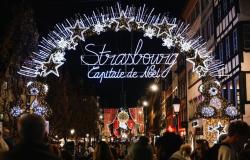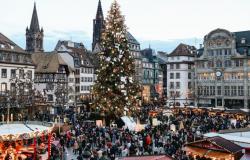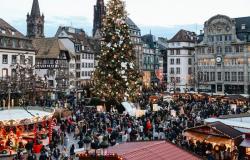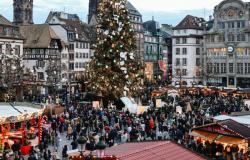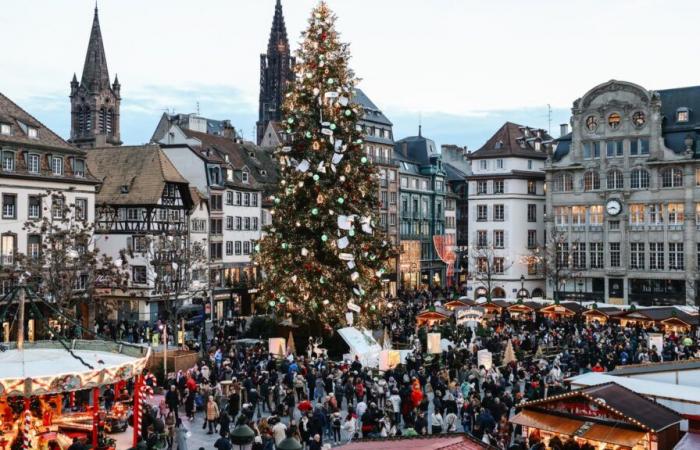
The municipality wants to have a more “responsible” and “authentic” Christmas market. To suit all budgets, the town hall wishes to focus on products made in Europe.
Limit items from the other side of the world. This year once again at the Strasbourg Christmas market, the end-of-year celebrations rhyme with sobriety. The traditional Strasbourg Christmas market opened its doors this Wednesday, November 27 and remains open until December 27.
More than 300 chalets are scattered in various squares throughout the city. “Of these 300 chalets, there are 200 which do not sell direct food,” explains Guillaume Libsig, deputy mayor in charge of Strasbourg Capitale de Noël, speaking to BFM Alsace.
The municipality tries to promote local crafts as much as possible. Designer markets are set up during this Christmas period to showcase the creations of local talents. “This year, in addition, we have the chalet in the Northern Vosges which will be particularly highlighted,” explains Guillaume Libsig, deputy mayor in charge of Strasbourg Capital of Christmas.
Suitable for all budgets
However, the town hall knows that the question of price remains very important for Strasbourg residents and passing tourists. “We had the debate on made in China,” recalls Guillaume Libsig. “Most exhibitors recognize that these are products that are risky for them, because in terms of security and logistics it does not hold,” explains the deputy.
However, he agrees that if “there were only crafts, not all budgets would be there.”
“There is this issue of financial accessibility. If we just make unique crafts at 400 euros per piece, we will lose a little authenticity in terms of the public”, concedes the deputy, who wishes to favor ” made in Europe”
Switch to a more eco-responsible market
“Afterwards, on the artistic direction and the sales choices, it is the responsibility of the exhibitors. But we have a dialogue with them on the subject”, shares the deputy mayor,
From this year, a “rating system is active”. Thus, at the start of 2025 “all 300 chalets” will receive a score out of 100 on eco-responsibility, authenticity, presentation “and two or three other subjects”.
With these changes, and everything that has been put in place “for three years”, the town hall is trying to move towards a more responsible Christmas market. “The objective is an ISO standard which is the standard for the Olympic Games and for all major events, on eco-responsibility,” shares Guillaume Libsig.

